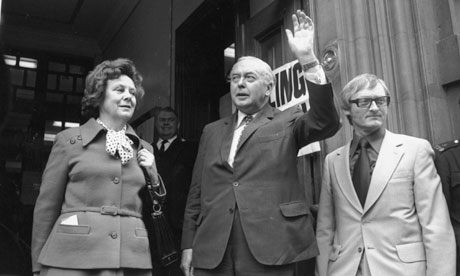Most of us will remain in the same social class as our parents and the same social class as their parents before them. It is a sobering thought. Despite the feel-good rhetoric of the self-help industry and the warm words of politicians, a child born into a poor family is almost certain to remain poor when they get older. The more unequal a society is, the harder it is for a child to escape his or her upbringing.
Rather than provide an honest appraisal of such inequalities, however, politicians offer endless sermons about ‘social mobility’ and ‘meritocracy’.
Most people on the left will have been dismissed at some point by an older peer, probably with an arrogant and lofty wave of the hand, as ‘unrealistic’ – or, worse still, as utopian.
Yet there are few ideas as utopian as that of meritocracy. A child born on a council estate can ‘get on’ only in the sense that a morbidly obese runner can beat Usain Bolt in the hundred metres. It could happen – the Jamaican might be struck by lightning, for example – but it probably won’t. And especially not if Bolt’s challenger is British: if you are British and poor you are less likely to escape your circumstances than in any other advanced country apart from the United States.
According to a 2007 study, poor but bright children are overtaken by less intelligent classmates from wealthier backgrounds in the very first years of schooling. The children of wealthier parents are more likely to go to the best schools (properties in desirable catchment areas cost on average 42 per cent more), eat the best food, have access to ‘high culture’ and a place to do their homework. They also benefit from a number of other forms of social and cultural ‘capital’ their working-class counterparts lack. As children get older these inequalities are concentrated further. Around 10 per cent of young people at the bottom rung of the social ladder go on to university, compared with over 80 per cent of those from professional or managerial backgrounds. And, as universities minister David Willetts never tires of pointing out, graduates will earn on average £100,000 more over a lifetime than non-graduates.
Meritocracy is an idea evoked by well-intentioned people who lack the courage to confront inequality, and by less well-intentioned people who use it to justify privilege and the accumulation of wealth. And yet it is a misnomer; the drive to improve social mobility and promote ‘equality of opportunity’ is always liable to stall if inequality isn’t addressed. As Washington Post writer Ezra Klein has written:
‘A rich parent can purchase test prep a poor parent can’t. A rich parent can usher their children into social networks a poor parent can’t. A rich parent can make donations to Harvard that a poor parent can’t.
‘The inequalities of the parents always and everywhere become the inequalities of the children.’(1)
(1) http://www.progressonline.org.uk/2013/10/30/why-working-class-kids-still-get-working-class-jobs/#sthash.VE3dM6B8.dpuf


